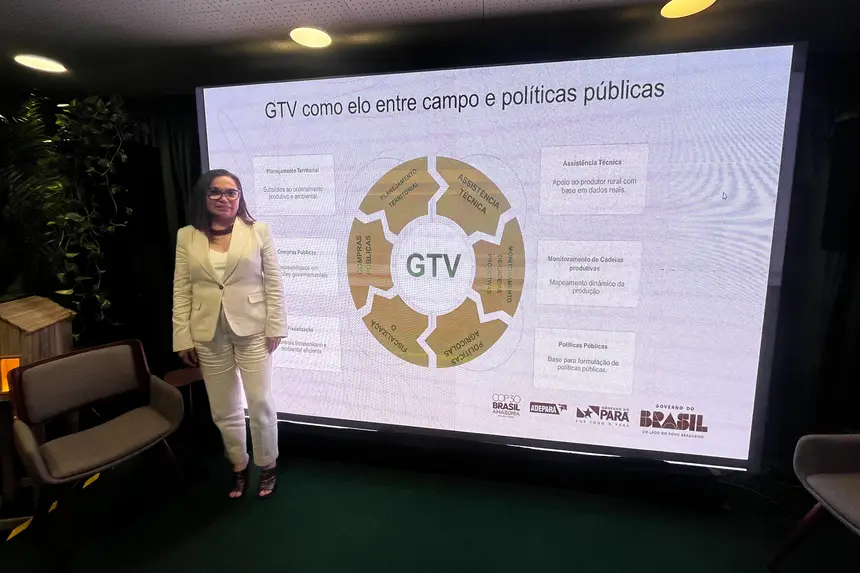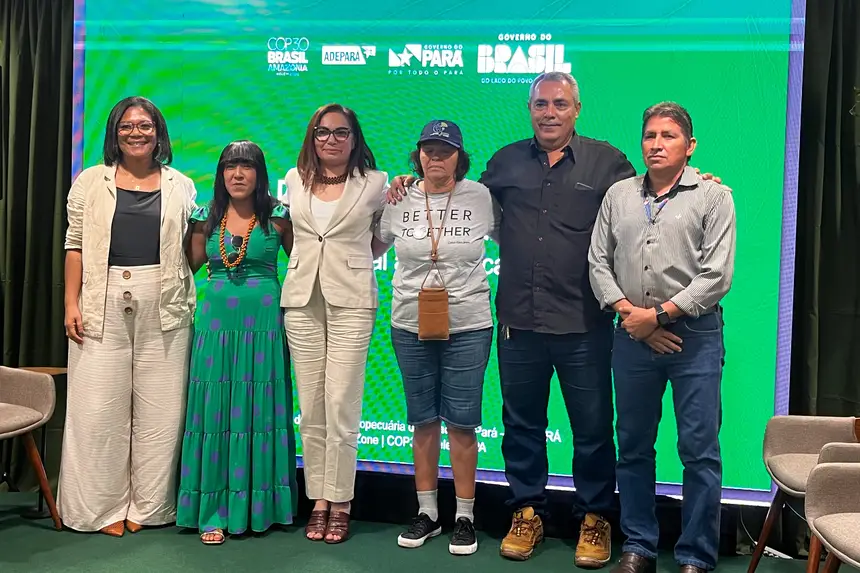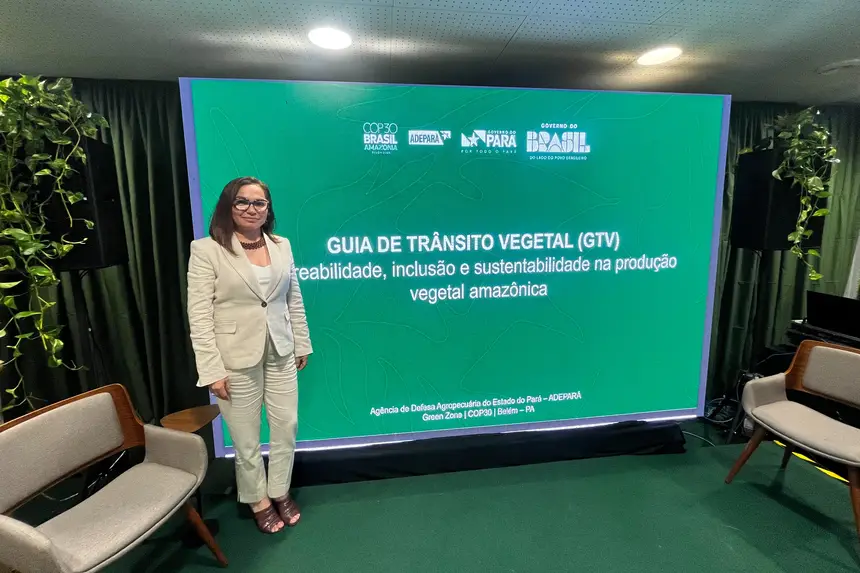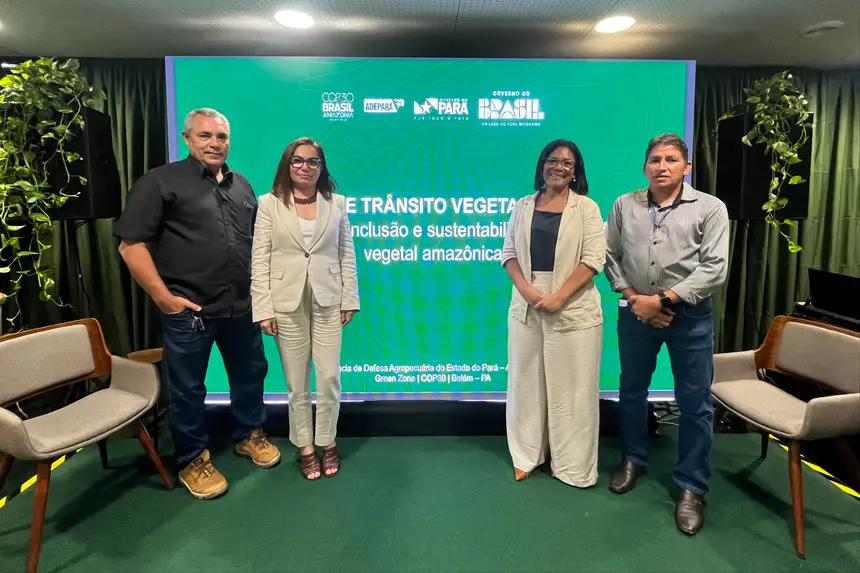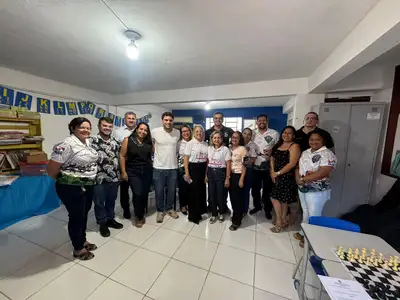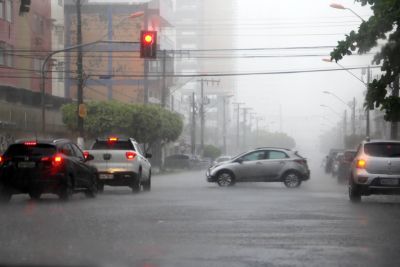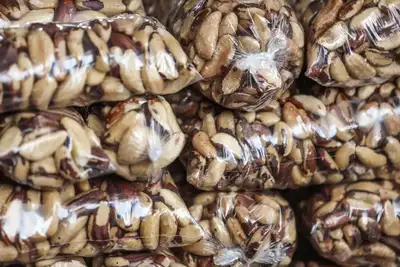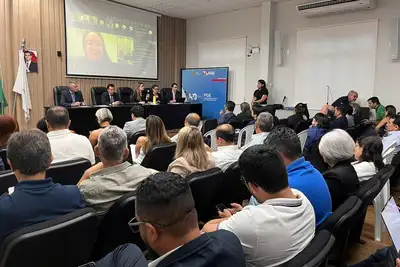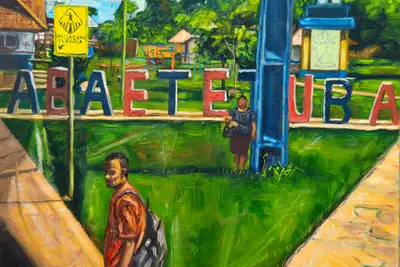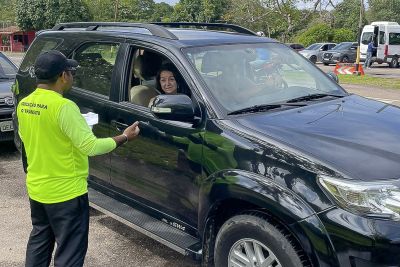ADEPARÁ highlights traceability of agricultural crops on the first day of COP 30
GTV applied to palm oil, açaí, and pineapple was a highlight in the program
On the first day of the 30th Conference of the Parties to the United Nations Framework Convention on Climate Change (COP30), in Belém (PA), the Agricultural Defense Agency of the State of Pará (ADEPARÁ) presented one of its main instruments for traceability of agricultural production: the Plant Transit Guide (GTV).
During a technical presentation at the Pará Pavilion, the director of Plant Defense and Inspection of the Agency, Lucionila Pimentel, emphasized the importance of the GTV, a document that accompanies loads of products of plant origin from the source to the final destination, ensuring sanitary control and safety throughout the production chain.
“We are building a solid and auditable database that will be part of the official statistics of the State. The GTV goes beyond a simple sanitary document: it is a strategic tool for productive inclusion policies, public health, strengthening agricultural chains, and promoting sustainability,” highlighted the director.
Currently, Pará stands out nationally as the largest producer of açaí, cocoa, cassava, and palm oil, and all this production undergoes strict oversight and control by ADEPARÁ, ensuring quality, traceability, and organization of the agricultural sector.
Lucionila Pimentel also explained that the Agency maintains its own system for managing agricultural information, developed internally, which enhances the visibility of production — especially that of family farming. The registration of producers is free and can be done at any ADEPARÁ unit present in the municipalities. After registration and a technical visit, the producer is already able to issue the Plant Transit Guide.
“With this public policy and the GTV, we are able to provide visibility and inclusion to family farmers, which is essential for the sustainability of their activities,” she reinforced.
Program
Throughout COP30, ADEPARÁ will present initiatives that integrate sanitary defense, productive inclusion, and sustainability, reaffirming Pará's commitment to low-carbon agricultural development and compliance with global climate goals.
Among the topics brought by the Agency are the Artisan Plant Inspection Seal, the traceability of the cattle and buffalo herd, and the recognition of Pará as a foot-and-mouth disease-free area without vaccination — a historic milestone for the state and for Brazil.
These actions consolidate Pará as a reference in animal health, food safety, and the appreciation of sustainable regional production, fundamental pillars of the climate and environmental agenda discussed at COP 30.


